Master Baker Interview with Chef Leslie Bilderback, CMB
“Being a chef isn’t all tall hats and clogs..” – Leslie Bilderback.
I am thrilled Chef Bilderback contacted me about her book, The Complete Idiot’s Guide to Success as a Chef, and then agreed to participate on my website. Leslie is a Certified Master Baker and has been a chef for nearly 20 years. Little did she know how little I know about baking, so I’m thrilled to have her expertise included at The Reluctant Gourmet.
Leslie graduated from the acclaimed California Culinary Academy (now closed) in San Francisco and then apprenticed under chefs Robert Jorin and Bo Friberg, two very well-known chefs in their field. She worked as a Pastry Chef at Postrio and Zola’s in San Francisco, Sedona in Berkeley, and Georgia in Los Angeles.
After leaving the restaurant world, Chef Bilderback became one of the first instructors at the California School of Culinary Arts (now closed) in Pasadena, California. She was head of the Baking and Pastries Department for many years and then became the Executive Chef “big boss” and helped guide the school as it partnered with Le Cordon Bleu 9now closed).
After becoming a Certified Master Baker in 1999, she was a finalist on Team USA of the Coup du Monde de la Boulangerie. Wow! And does Leslie stop here?
No, she then collaborated with Spago’s Pastry Chef Sherry Yard on the James Beard Award-winning cookbook, The Secrets of Baking. Can you understand why I am so excited Leslie accepted to be on my site?
Leslie lives in Southern California, a wife and mother of two daughters and two dogs. I am thrilled to introduce you to Chef Bilderback and finally have someone who can answer some of your baking questions. Here’s her interview:
Chef, When did you realize you wanted to be a professional chef?
I have been working in the business in one form or another since I was 14. After college, I was a little burnt out in my major (art history) , and I happened to attend a function at the California Culinary Academy in SF.
Ten minutes in that building and I was hooked. It is a converted theater, with a dining room where the seats would be, and the stage is a kitchen with glass windows, so you can see all the hustle and bustle. Its cool!
Who inspired you most as a young cook?
Julia Child and Mom. We always watched the French Chef and cooked together a lot. The more challenging the better. Mom also took me to fabulous places to travel and eat, which had a big effect. I am trying to do that now with my kids.
What Did You Learn From Them?
Julia taught in a very matter-of-fact way. She never made it seem hard, but you always knew it was special.
Did you go to culinary school, and if so, where?
I went to California Culinary Academy in San Francisco, and graduated in 1988. It was an incredible time to be in the San Francisco food scene.
Alice Waters was huge, and her protege Jerimiah Tower had STARS, which was the hottest place in town. Southwest was creeping in, Cajun was going out, and we started calling what we did California Cuisine, with fresh, seasonal ingredients and a fusion of Mediterranean, Asian, Mexican, and whatever else was cool.
How were you trained, and what was that like?
I was trained by European men. There were a few other girls in class but no women teachers. These guys had all been important chefs in their time and were on the road to retirement by the time I got them. They were chefs for cruise lines, heads of state, and 5-star restaurants.
They were so much better than the chefs in today’s schools, who are mostly burnt-out culinary school graduates and failed restaurant owners.
Can you recall a funny culinary student story and share it with us?
Once, I spilled a boiling bain marie down my legs. (Not the funny part.) I went into the walk-in and removed my pants to cool my blistering skin. The busboys suddenly needed to come in for half and half, then lemons, then butter, then more half and half. It seemed like a lot of stuff. I think they just wanted to see me in my underpants.
What was your first job as a professional cook, and what was it like?
I was hired right after graduation as a pastry chef at a southwestern rest. in the Shattuck Hotel in Berkeley, CA. The chef had taught a seminar I took, and he really took a chance on me. And it didn’t necessarily pay off for him right away.
I was in WAY over my head, and some cooks had been there longer than they should have had the job. But he stuck with me, and I trudged through. I was there about 3 years, and I learned so much…more than I did in school. I actually worked again for that Chef at another place a few years later.
Since your specialty is baking, what 5 baking mistakes do you see home cooks make most often?
- over-creaming
- over folding
- over whipping
- underbaking
- fear of experimentation. Baking is just cooking. You can adjust and interpret just as much as you would with a chicken or soup.
What would you say to a kitchen novice to help them overcome their fear of cooking?
Its only food. It sounds simplistic, but I feel there is a misrepresentation of cooking, especially French food and baking.
People here are under the assumption that it is hard, or technical, or secret. But it’s nothing you can’t learn, and even teach yourself. So pick something hard, learn about it, and try it. But don’t be snooty. It’s only food.
Being knowledgeable about it doesn’t make you superior.
What is your favorite cooking style, and what about that style most appeals to you?
I am currently fascinated by ancient cooking methods, but my favorite food is anything Indian. This stems from a book of spices I just wrote, during which time my craving for spice was unquenchable. I am writing about snack cakes next, so I am a little worried.
In your opinion, what are the most important elements when creating a recipe from scratch?
Quality ingredients are important, but the most important thing to do is to read through the recipe ENTIRELY before starting it. Ensure you understand all the steps, have enough time to complete it, and have all the stuff.
What is your favorite cooking gadget?
I am not a gadget girl. One of my chefs once told me you can do anything with a French Knife. It’s really true. I can even open a wine bottle with one. I super-hate the “zester” and the butane torches. If you’re gunna torch, don’t be a wimp—go propane.
What 5 cookbooks would you recommend every home cook own?
- Joy of Cooking – Rombauer
- The Way to Cook – Julia Child
- The Making of a Cook – Kamman
- Mastering the Art of French Cooking – Child, Bertolle, Beck
- The entire Good Cook series from Time-Life
- On Food and Cooking- McGee
- …and if you’re thinking about a career in food… The Complete Idiot’s Guide to Success as a Chef – By Me – Leslie Bilderback
What is your favorite spice to cook with, and why?
Cardamom. My grandma used it in these Norwegian cookies at Christmas, and I thought of it as a sweet spice my whole life until I started tasting curries. It’s so awesome!
Buy the pods and get yourself a little mortar. Add it to all your spicy dishes, and sweet ones too. It also goes in every gingerbread and apple pie spice mix I make.
What is the most underrated ingredient in your opinion?
The lemon. It is so necessary and so underused as a flavor enhancer. You know…acid is just as important as salt when adjusting seasoning. I am lucky to have a tree. VERY lucky.
As a professional chef, what was your funniest kitchen incident?
Do you have any more funny stories? I remember laughing a lot, but I can’t remember why. It is important to have fun at work and see the joy in every mundane task. But it is a business, and it should be taken seriously, too. You must find balance.
When cooking at home, what do you like to prepare for yourself?
Meusli and homemade granola. I love cereal.
Thank you, and I hope you enjoyed the interview.
I did. Who doesn’t like talking about themselves? It fascinates me
Is A Culinary Career Right For Me?

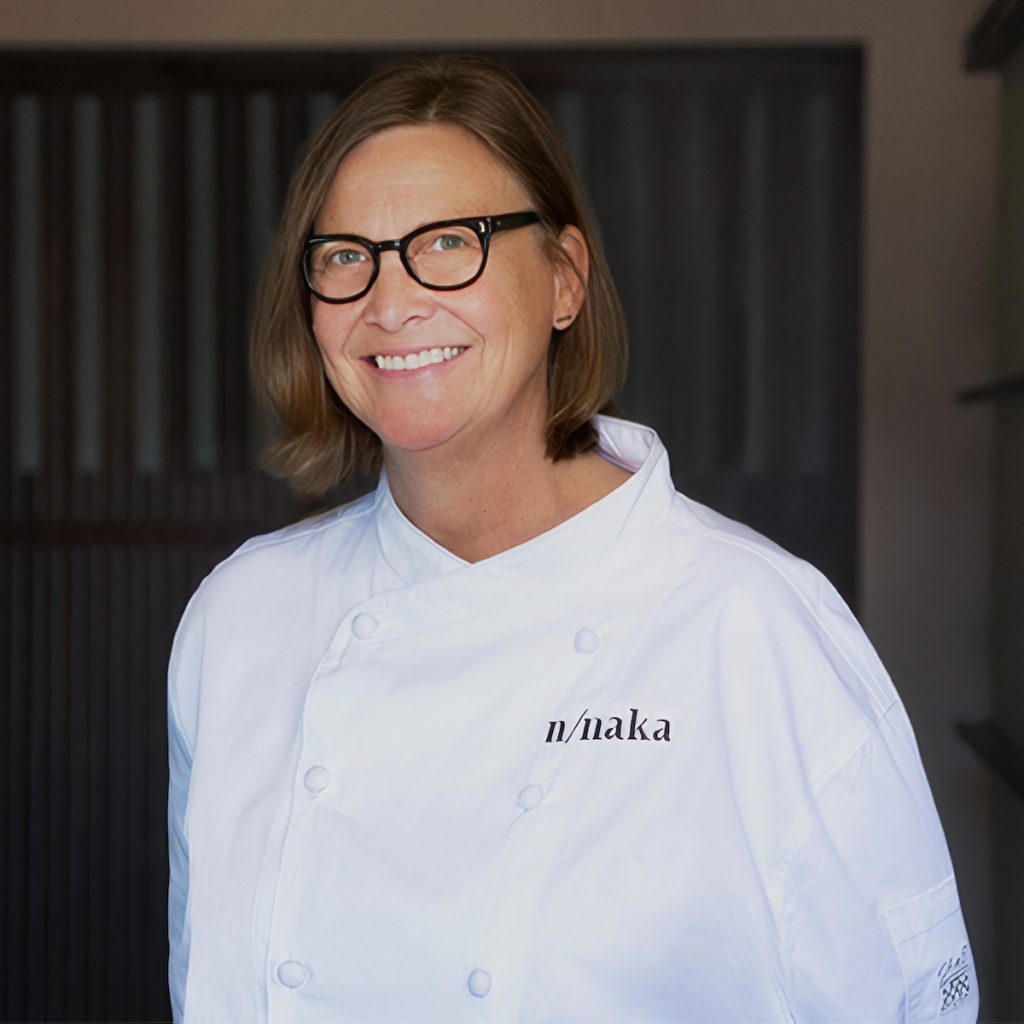
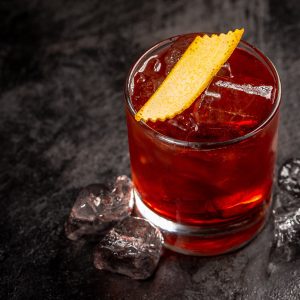
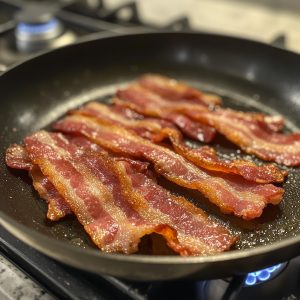


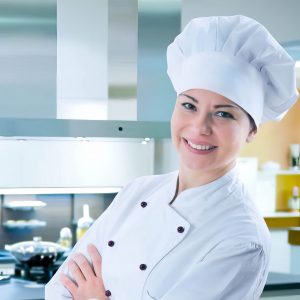
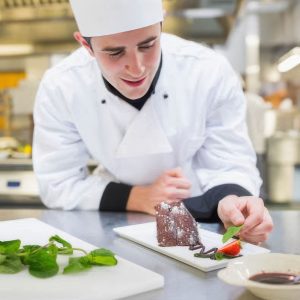
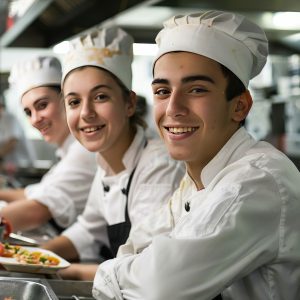
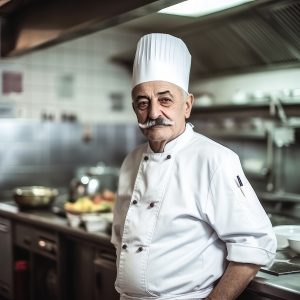
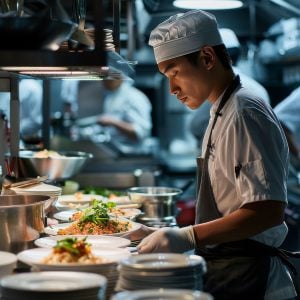
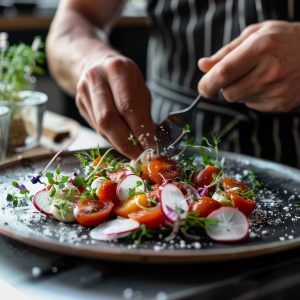
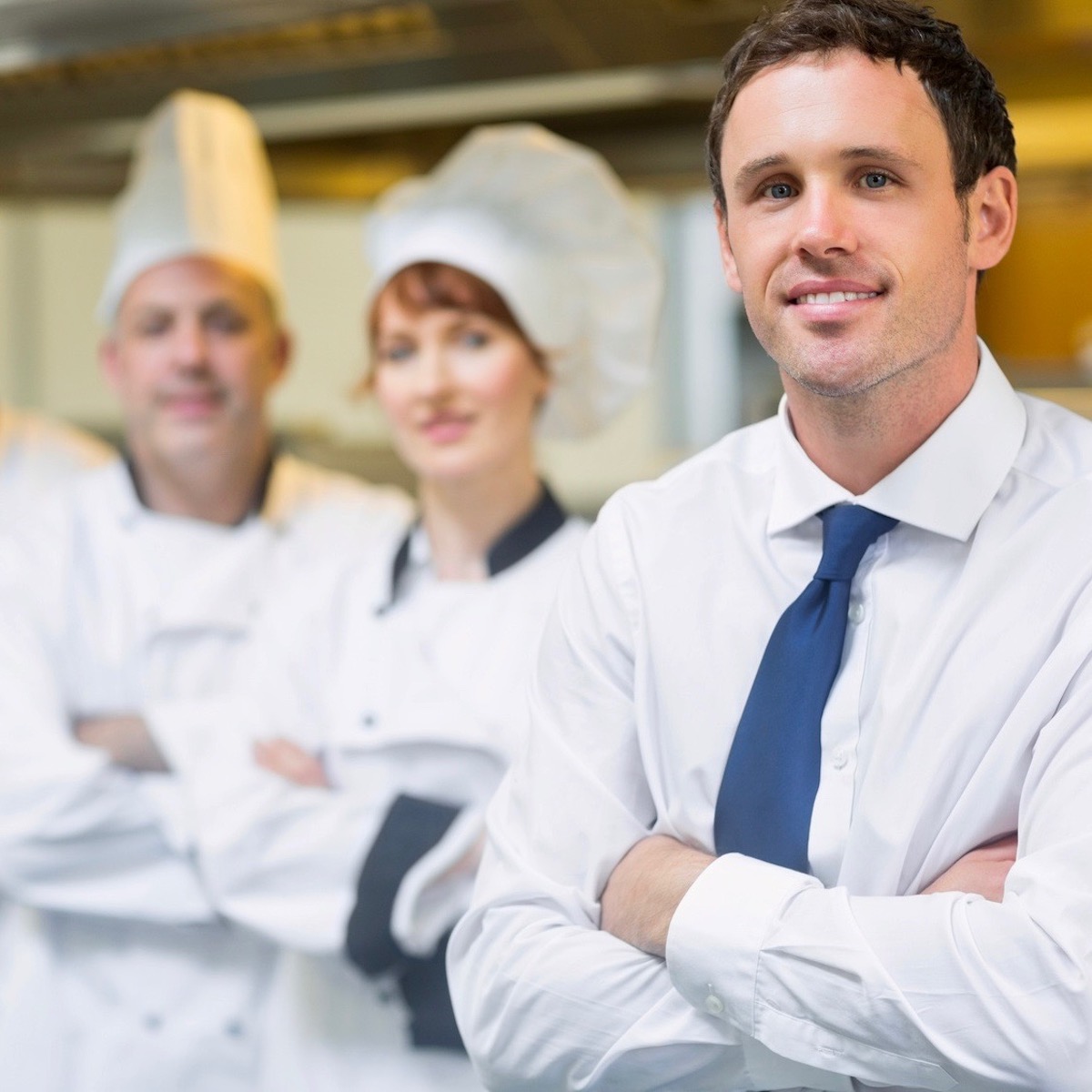


4 Responses
Hi there, I am from Durban South Africa and have been accepted to attend International Hotel School – to do a Patisserie course. I am 50 years old and have baked for about 30 years. My dream is to own a dessert coffee shop. My weakness is. . . .lack of confidence and a fear of experimenting. My family is going to financially struggle through this and I just hope that this course will give me the knowledge to step up and use it, to follow my dream. Any advice from you would be greatly appreciated.
regards
Son
Hi Sonja, my best advice would be to work hard, learn as much as you can, get as much experience as you can and network. The people you go to school with may be your best contacts when you graduate. Your teachers can also be great resources for you. I wish you much success and please come back and tell me how your studies are going.
Dear Chef Leslie, I just purchased your “Mug Cakes”. I can hardly wait to try them….but have a question. On Page 4 you say there are no special instructions in making mug cakes with using microwaves. Does this mean I start off using “high” power & hopefully the mixture won’t explode, or do I start off on “medium” & work my way to higher heat? We all waiting in anticipation of your answer. Thanks lots. nancy 🙂
May I ask a couple questions of Leslie Bilderback here? Just discovered her Mug Cakes cookbook in the library, like it so much am going to buy a couple copies.
Want to know if there is a way to get at calories for these recipes?
And how to convert them to full sized cakes, what ratio – do I triple or quadruple or … the recipe to fill an 8×8 or 9×13 pyrex dish? Some of these are recipes I’ve seen nowhere else and would like to make full size for potlucks and for dinner guests. Thank you!